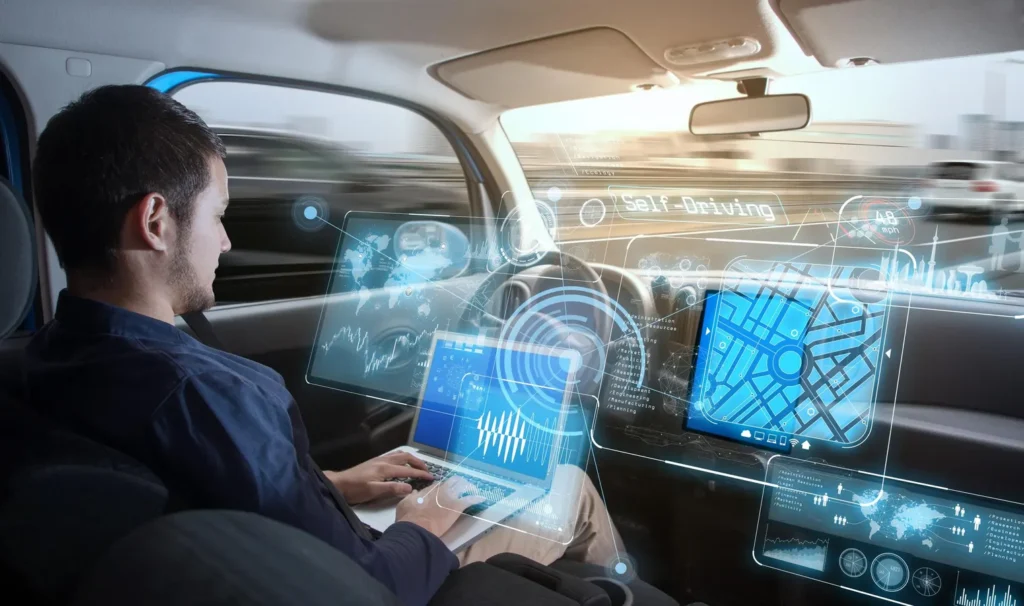Welcome to the exciting world where Artificial Intelligence and automobile manufacturing merge to create a revolution! In this blog post, we will explore how AI is reshaping the way cars are built, from advancements in automation and robotics to the benefits and challenges faced by major car companies. Get ready to dive into a realm of innovation and efficiency as we uncover the limitless possibilities that AI brings to the automotive industry. Let’s buckle up and discover how technology is driving us towards a brighter future in car manufacturing!
Advancements in Automation and Robotics
Advancements in automation and robotics have completely transformed the way automobiles are manufactured. Gone are the days of manual labour dominating production lines, as AI-driven technologies now play a crucial role in streamlining operations.
Robotic arms equipped with sophisticated sensors can perform intricate tasks with precision and efficiency that surpass human capabilities. These robots work seamlessly alongside human workers, enhancing overall productivity while ensuring consistency in quality.
Automation has also revolutionized supply chain management by optimizing inventory control and reducing lead times. Smart systems powered by AI algorithms can predict demand trends, enabling manufacturers to adjust production schedules accordingly.
Furthermore, collaborative robots, or cobots, have become integral in enhancing workplace safety by handling hazardous tasks that pose risks to human employees. This not only ensures a safer working environment but also boosts employee morale and productivity.
Advancements in automation and robotics continue to push boundaries in the automobile manufacturing industry towards greater efficiency and innovation.
Benefits of Implementing AI in Automobile Manufacturing
Implementing AI in automobile manufacturing brings a multitude of benefits to the industry. One significant advantage is the enhanced efficiency achieved through predictive maintenance. By analyzing data in real-time, AI can predict when maintenance is needed, reducing downtime and costs associated with unexpected breakdowns.
Moreover, AI optimizes production processes by identifying bottlenecks and streamlining workflows. This results in increased productivity and higher quality output. Additionally, AI-powered robots can perform repetitive tasks with precision and speed, freeing up human workers for more complex and creative roles.
Furthermore, safety improvements are paramount as AI enables autonomous vehicles to detect potential hazards on the road and react swiftly to avoid accidents. The integration of AI also leads to environmental benefits through optimized fuel consumption and reduced emissions.
The implementation of AI in automobile manufacturing not only boosts operational efficiency but also drives innovation and sustainability within the industry.
Case Studies: Successful Integration of AI in Major Car Companies
Major car companies are embracing the power of artificial intelligence to revolutionize their manufacturing processes. Toyota, for example, has implemented AI-driven predictive maintenance systems that help prevent breakdowns and optimize production schedules in real-time. This has led to increased efficiency and reduced downtime on the factory floor.
On the other hand, Tesla utilizes AI algorithms to improve its autonomous driving technology continuously. By collecting and analyzing vast amounts of data from sensors and cameras, Tesla vehicles can adapt to changing road conditions with remarkable accuracy. This integration of AI not only enhances safety but also paves the way for fully self-driving cars in the near future.
BMW is another frontrunner in incorporating AI into its manufacturing operations. The company uses machine learning algorithms to streamline quality control processes, ensuring that every vehicle meets rigorous standards before leaving the factory. This attention to detail results in higher customer satisfaction rates and strengthens BMW’s reputation for excellence in engineering.
These case studies highlight how major car companies leverage artificial intelligence to stay ahead of the curve in an increasingly competitive industry. By harnessing the capabilities of AI technologies, automakers can drive innovation, boost productivity, and deliver cutting-edge vehicles that meet evolving consumer demands seamlessly.
Challenges and Limitations of AI in the Industry
Navigating the implementation of AI in automobile manufacturing does come with its set of challenges and limitations. One major hurdle is the high initial investment required for integrating AI technology into existing production processes. Companies need to carefully weigh the costs versus benefits before committing to such a significant financial outlay.
Another challenge lies in ensuring data security and privacy when utilizing AI systems that collect and analyze vast amounts of sensitive information. Safeguarding against potential cyber threats and breaches becomes paramount as these technologies become more prevalent in the industry.
Furthermore, there is a need for upskilling and reskilling the workforce to effectively collaborate with AI systems. Training employees to adapt to working alongside machines can pose difficulties, requiring companies to invest in comprehensive training programs.
Moreover, regulatory frameworks surrounding autonomous vehicles are still evolving, presenting uncertainty around legal liabilities and ethical considerations related to self-driving cars powered by AI algorithms.
Despite these obstacles, addressing these challenges head-on will be crucial for driving innovation forward in the automobile manufacturing sector.
Future Predictions for AI in Automobile Manufacturing
As we look towards the future of artificial intelligence in automobile manufacturing, the possibilities seem endless. With continuous advancements in AI technology, we can expect even greater integration of automation and robotics on the production line.
AI algorithms will become more sophisticated, enabling predictive maintenance to prevent breakdowns before they occur. This proactive approach will streamline operations and minimize downtime, resulting in increased efficiency and cost savings for manufacturers.
Moreover, machine learning capabilities will enhance design processes by analyzing consumer preferences and market trends. This data-driven approach will lead to the development of more personalized vehicles tailored to individual needs.
Collaborative robots working alongside human workers will become a common sight in factories, improving productivity and ensuring a safer work environment. The synergy between humans and machines will redefine traditional manufacturing practices.
Embracing AI in automobile manufacturing holds immense potential for transforming the industry into a highly efficient, innovative, and tech-savvy landscape. The future is bright with endless possibilities awaiting us as we continue to revolutionize automotive production through artificial intelligence.
Conclusion: Embracing the Change towards a More Efficient and Innovative Industry
Embracing the Change towards a More Efficient and Innovative Industry
As we journey through the realms of Artificial Intelligence in automobile manufacturing, it becomes evident that this technology is not just a trend but a significant revolution shaping the future of the industry. The advancements in automation, robotics, efficiency, and innovation brought about by AI are transforming production processes like never before.
Car manufacturers are leveraging AI to enhance quality control, streamline operations, reduce costs, and ultimately deliver superior vehicles to consumers worldwide. Through successful case studies from major players in the market, we see how AI is optimizing every aspect of automobile manufacturing.
Despite its challenges and limitations which require continuous improvement and adaptation strategies, the potential for AI in this sector is vast. Looking ahead, predictions suggest even greater integration of artificial intelligence into manufacturing processes leading to unprecedented levels of efficiency and innovation.
As artificial intelligence continues to evolve and mature within the automobile manufacturing industry, companies that embrace this change will undoubtedly thrive in an era where technology reigns supreme. It’s time for all stakeholders to welcome this transformation wholeheartedly as we embark on a journey towards a more efficient and innovative automotive landscape powered by AI.



